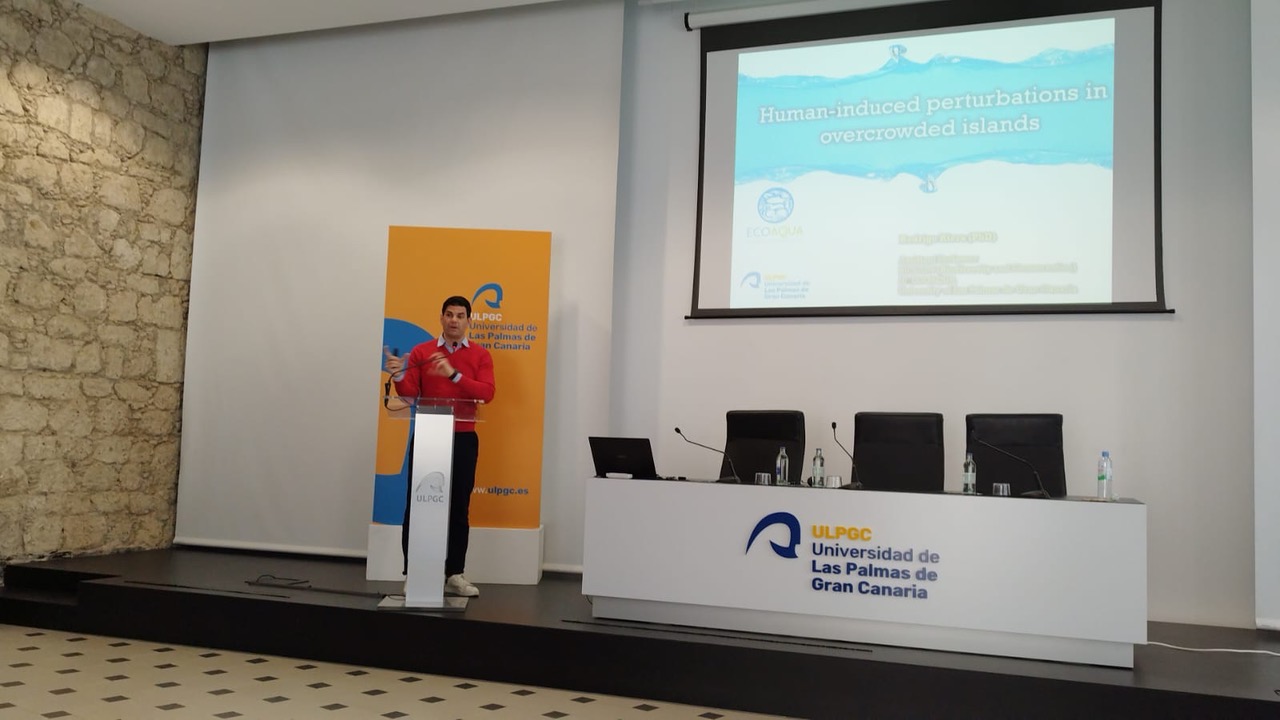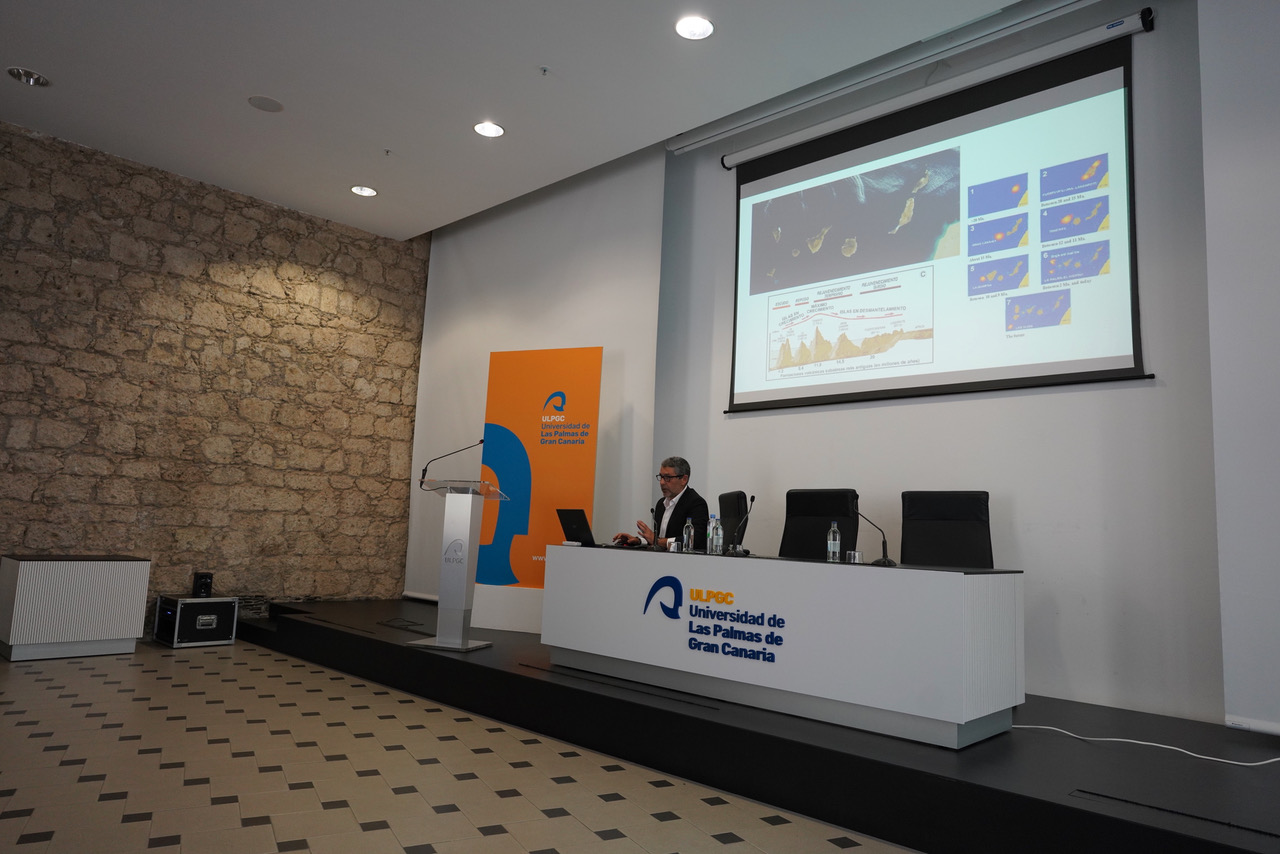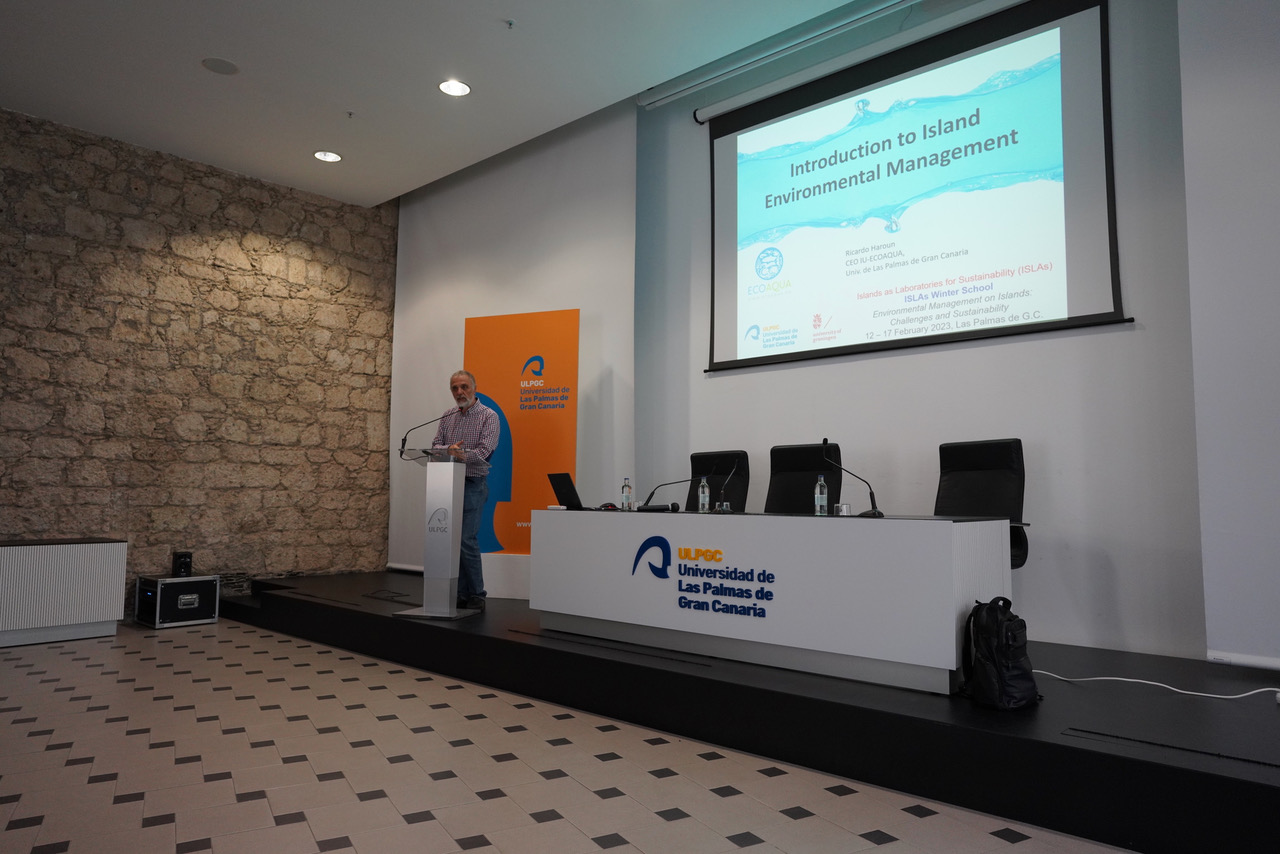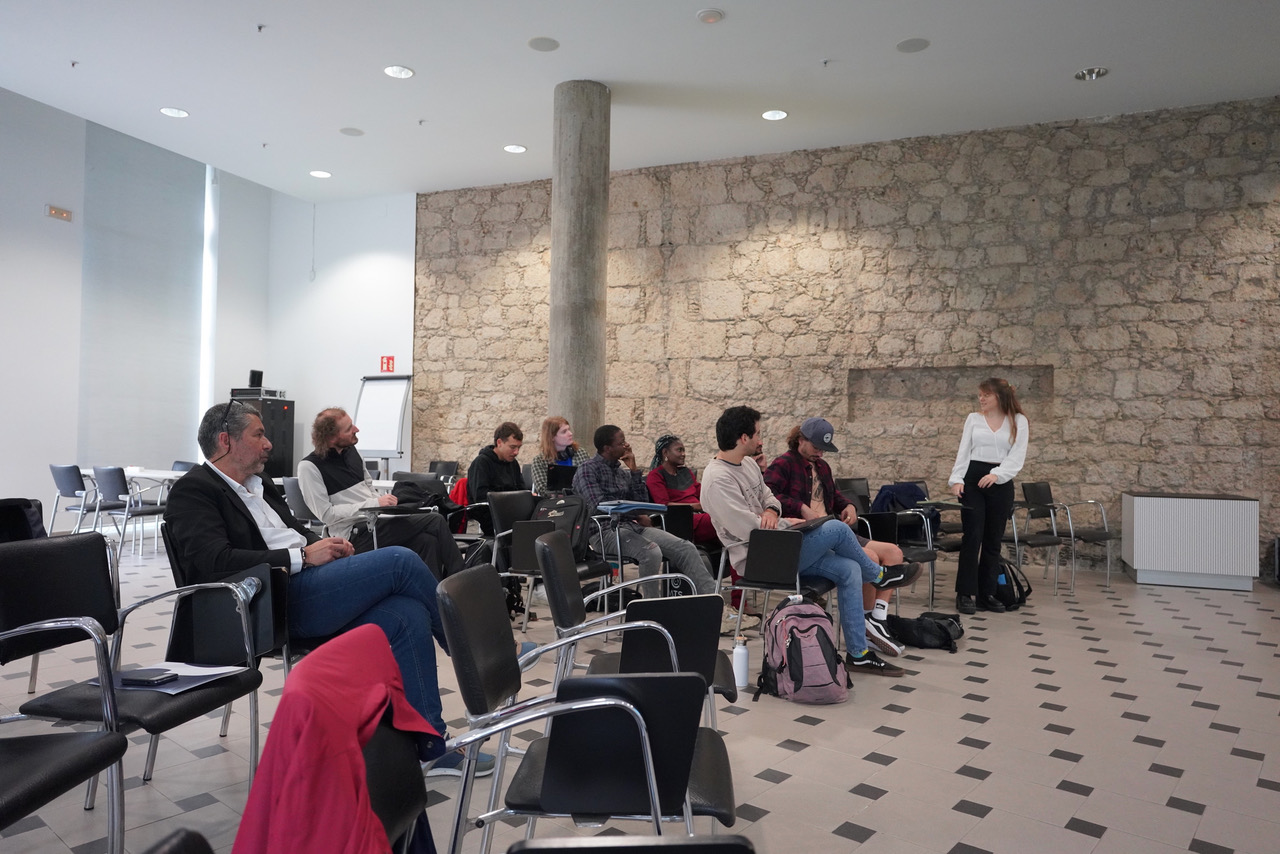This week the Piedra Lounge of the Rectorate of the University of Las Palmas de Gran Canaria (ULPGC) hosts the course 'Environmental Management in the Islands: Challenges and Sustainability", which is organized by the Institute for Research in Sustainable Aquaculture and Marine Ecosystems (ECOAQUA), in collaboration with the University of Groningen (one of the largest and oldest in the Netherlands).
The course was opened by the Vice-Chancellor for Internationalization, Mobility and International Projection of the University of Gran Canaria, Jin Taira. Also present were the Vice-Chancellor of Degrees, Postgraduate and New Degrees, Luis Hernández Calvento, associated to the IOCAG institute, the director of the University Institute ECOAQUA, Ricardo Haroun, professor Dimitris Ballas of the University of Groningen, and professor Rodrigo Riera, researcher of the ECOAQUA institute, coordinator of this Winter School.

Rodrigo Riera, coordinator of the course on behalf of the Biodiversity and Conservation group of ECOAQUA
Professor Riera presented the main disturbances that occur in the coastal environment, with special reference to islands with a high population density, as Gran Canaria.
On the other hand, Professor Dimitris Ballas of the University of Groningen highlighted during his speech the importance of organizing this type of advanced courses in island territories, with different case studies on crucial issues for island sustainability. During this week the students carry out a joint work on aspects related to the sustainability of islands, where they will develop an analysis that can potentially be used to implement in Gran Canaria. In this first edition, nine students from different nationalities are participating: England, Nigeria, France and Brazil and one student from the ULPGC.

Luis Hernández Calvento, Vice Chancellor for Degrees, Postgraduates and New Degrees
Finally, Vice-Chancellor Luis Hernández-Calvento, researcher at the Institute of Oceanography and Global Change (IOCAG), presented the importance of the geological context of the Canary Islands archipelago, as well as the geomorphological characteristics and the different degrees of changes in the Canary Islands, with special reference to the coastal occupation.
The course has a long list of prestigious speakers and moderators such as Professor Godfrey Baldacchino, from the University of Malta, Professors Dimitris Ballas and Richard Rinjks, both from the University of Groningen, Professor Ricardo Haroun, coordinator Rodrigo Riera, researchers Fernando Tuya, Andrej Abramic, Sandra Navarro, Lidia Robaina, Néstor Bosch, Víctor Cordero, Marcial Cosme and Yaiza Fernández-Palacios, all of them from ECOAQUA, as well as Professor Julieta Schallenberg, from the Research Group on Renewable Energies (GRRES) of the ULPGC, and Professor Juan Carlos Martín Hernández from the Institute for Tourism and Sustaniable Economic Development (TIDES) of the ULPGC, and Luis Hernández-Calvento, Carolina Peña and Abel San Romualdo, from the IOCAG of the ULPGC.
New Joint Master's Program in Islands and Sustainability
The course 'Environmental Management in the Islands: Challenges and Sustainability' is the introduction to the next Master "Islands and Sustainability" funded through the Erasmus+Mundus Program, which officially starts next February 27th and in which the University of Las Palmas de Gran Canaria (Spain) and the University of Groningen (The Netherlands), together with the University of the Aegean (Greece) and the University of Iceland are also participating.
In this sense, it is important the possibilities of interaction between attendees coming from different countries and with a different professional profile to address the challenges of island sustainability.

Ricardo Haroun, director of ECOAQUA
Within the current global economic and social system, islands may face in many cases economic, social, political and cultural alienation unless they cooperate. Such synergies should be measured in both research and education on ways to manage islands and increase the capacity of island communities. Understanding the problems and finding effective ways to develop the potential of small islands requires international academic cooperation that goes beyond the specificities of each island.
"It is evident that there is a demand for a high quality master's program on sustainable development in the islands that can improve the training and technical knowledge required in this field. Therefore, these different university centers have joined forces to launch a high-level integrated study program on the islands at the master's level," says the director of the University Institute ECOAQUA, Ricardo Haroun.
In his opinion, islands are biodiversity hotspots where problems are intensified to carry out conservation actions for the species present in these island ecosystems, as well as the threats to which they are exposed, such as invasive species.
For more information on the master's program, please click here.
For more information, please contact:
Beatriz Diaz - beatriz@mandarinacomunicacion.es - 620410871


